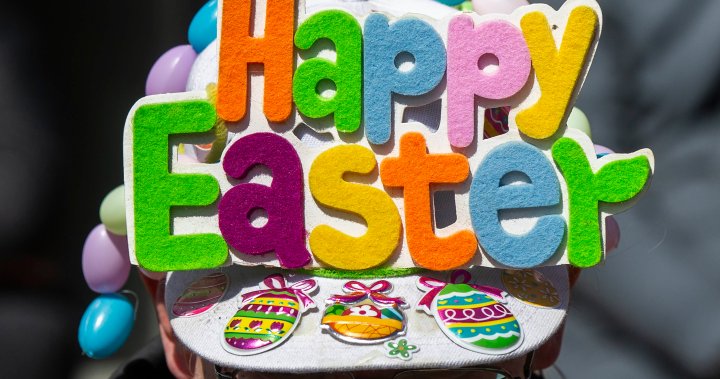After facing a flood of angry comments, Veterans Affairs Canada staff found themselves working over the Easter weekend this year to address a social media post that did not mention the holiday. The original post on March 29, Good Friday, simply wished people a “happy March holiday season,” leading to confusion and questions about what exactly was being celebrated. A second post specifically mentioning Easter was published two days later on Easter Sunday. The department’s social media team had scheduled both posts in advance, but by the time the Easter wishes were posted, the original message had already sparked a controversy.
The post wishing people a happy March holiday season received hundreds of comments from outraged individuals who felt that Easter had been excluded or downplayed. Some users expressed confusion as to why Easter was not mentioned, while others criticized the post as being disrespectful and shameful. Pollster Angus Reid also weighed in, criticizing the department’s communication strategy as being overly secular and lacking respect for the cultural and religious diversity of Canada. The internal communications within the department revealed that staff were aware of the backlash and referred to the situation as a “dumpster fire.” Staff discussed online concerns and acknowledged that their attempt to be apolitical had inadvertently become political, reflecting the government’s broader approach to communications.
In response to media inquiries about the March holiday season post, the department decided not to include a list of holidays that were originally mentioned in an early draft. The list included Easter, Ramadan, Purim, St. Patrick’s Day, and the Spring equinox. Ultimately, the final version of the post featured a photo of two Armed Forces members preparing Easter dinner, but did not mention any of the other holidays. The decision to exclude the list from the response to reporters’ questions indicates a cautious approach to addressing the controversy and avoiding further backlash. The department’s communications staff were aware of the sensitivity surrounding the issue and chose to focus on acknowledging Easter without explicitly addressing the exclusion of other holidays.
The viral post on Veterans Affairs Canada’s social media platform garnered significant attention, with over 2.9 million views and more than 4,800 comments as of the following Thursday. The overwhelming reaction to the post highlighted the importance of cultural sensitivity and inclusivity in public communications, particularly when it comes to recognizing and celebrating religious holidays. The incident also sparked a broader discussion about the challenges of navigating diverse cultural contexts while maintaining a neutral and inclusive stance. The department’s response to the controversy reflects a careful balancing act between addressing concerns and upholding the government’s commitment to political neutrality in communications. Moving forward, Veterans Affairs Canada may need to reassess its social media strategy to ensure that future posts are culturally appropriate and considerate of all religious traditions.
Overall, the incident involving the social media posts by Veterans Affairs Canada underscores the delicate nature of public communications, particularly in the context of diverse cultural and religious backgrounds. It serves as a reminder of the importance of cultural sensitivity and inclusivity in all forms of communication, especially when addressing matters related to holidays and celebrations. The department’s handling of the situation, from the initial scheduling of the posts to the response to media inquiries, reflects the challenges of balancing political neutrality with cultural recognition. As Canada continues to evolve as a multicultural society, it is crucial for government agencies and organizations to be aware of the complexities involved in communicating with a diverse audience and to strive for inclusivity and respect in all forms of messaging.













